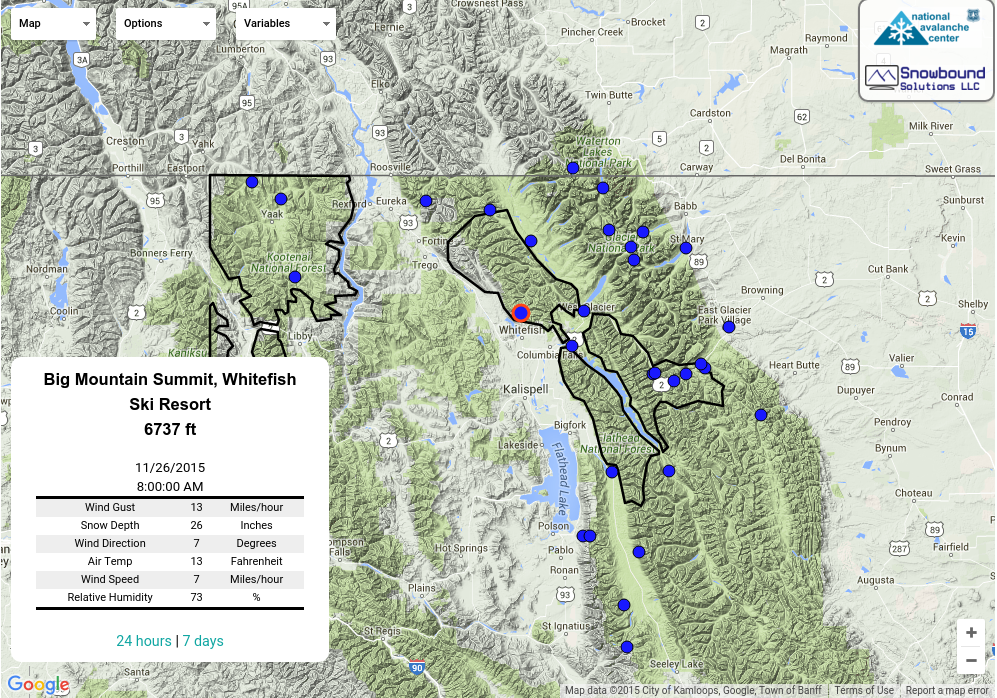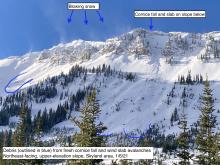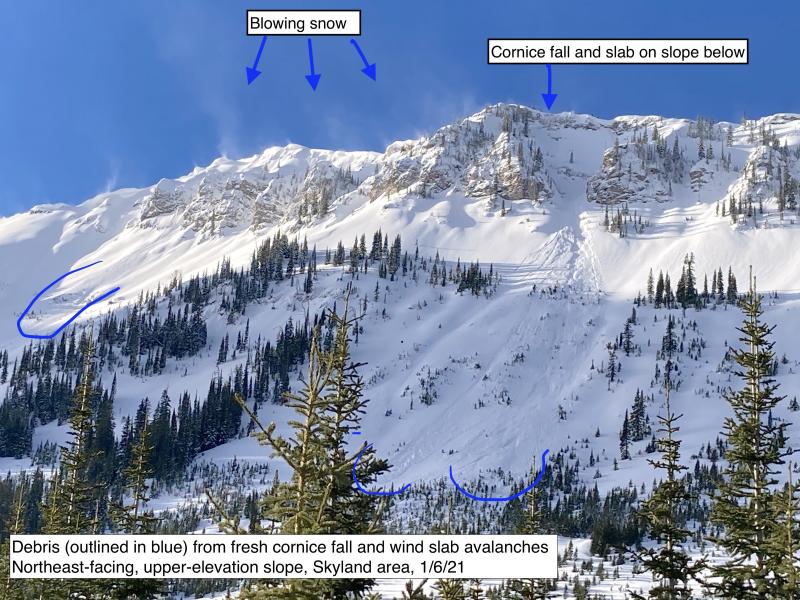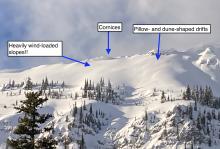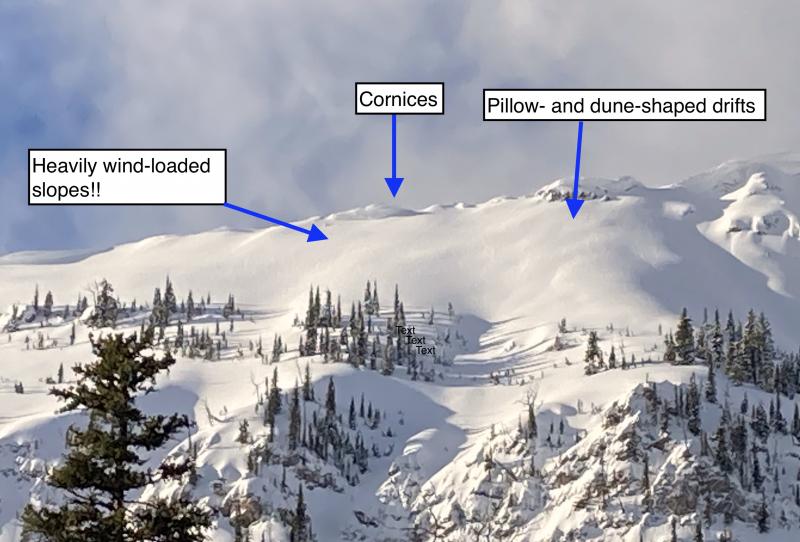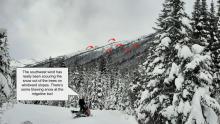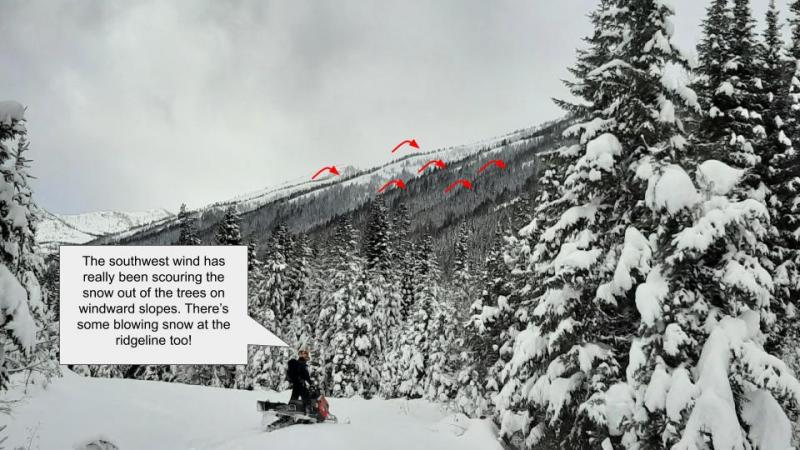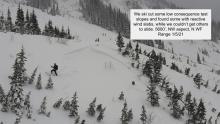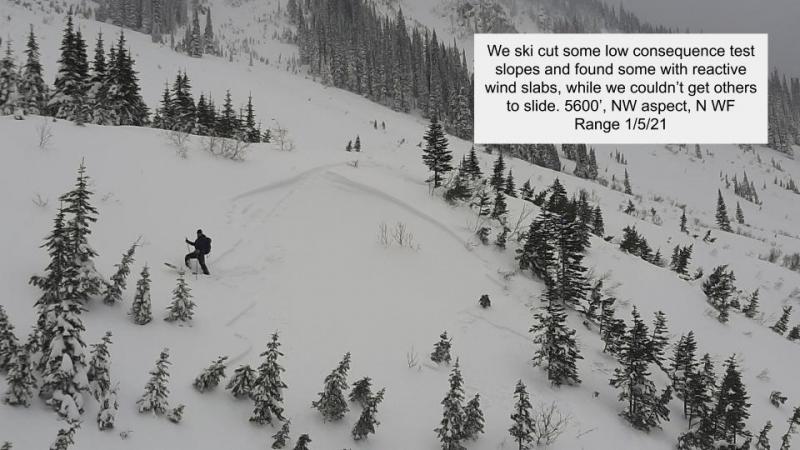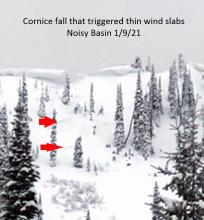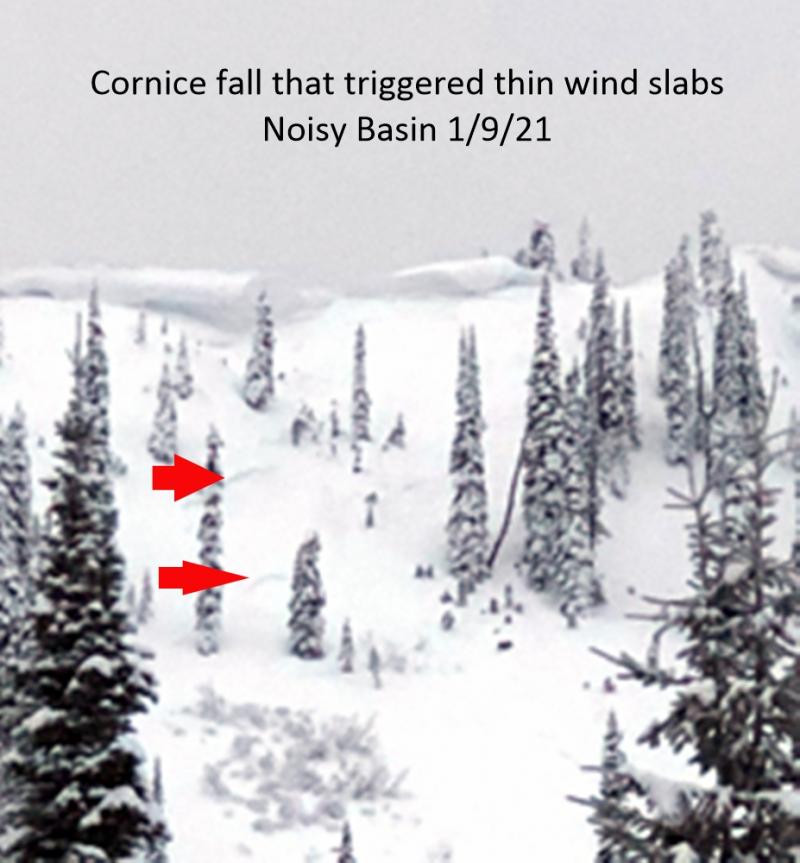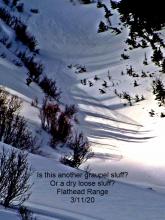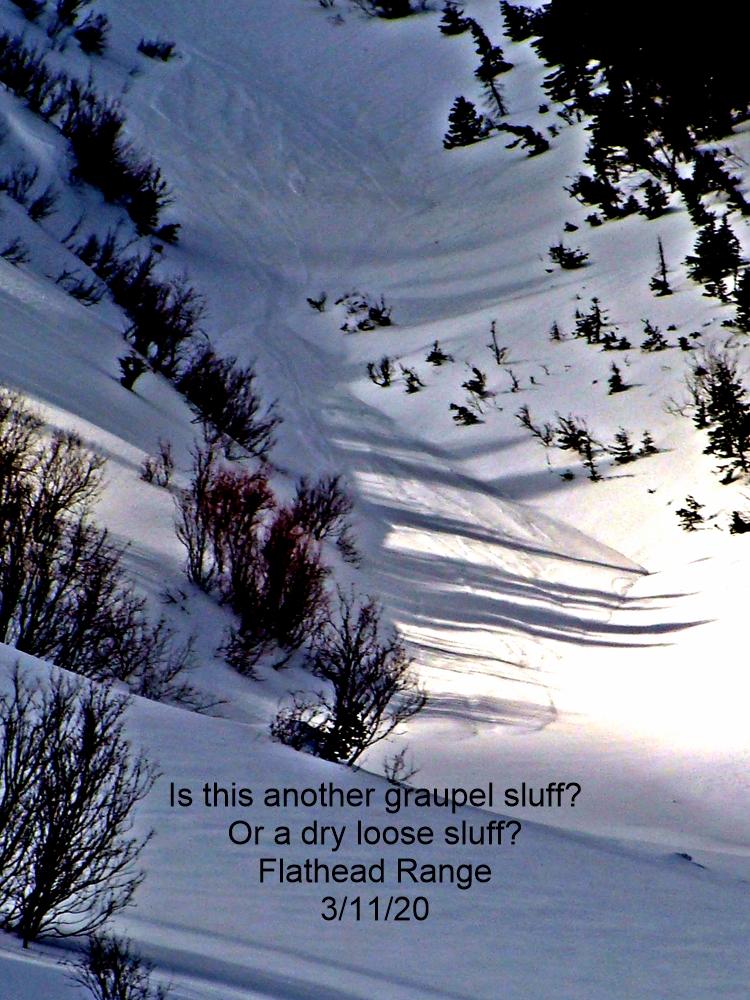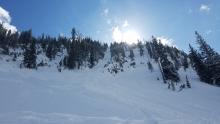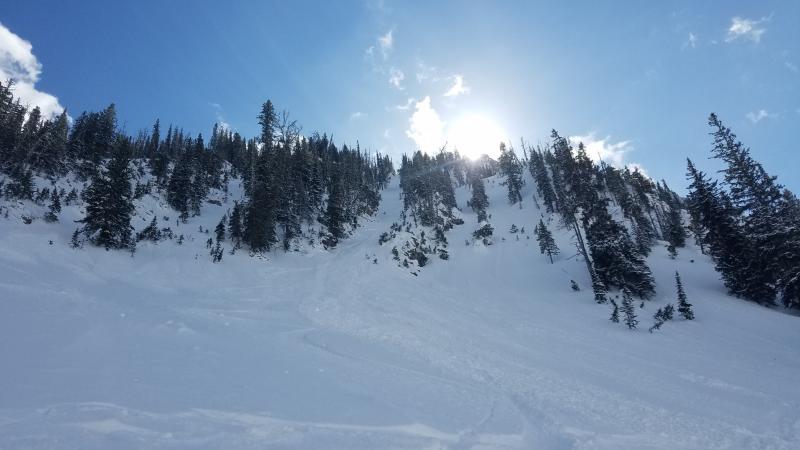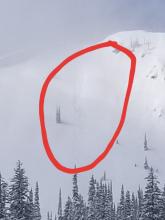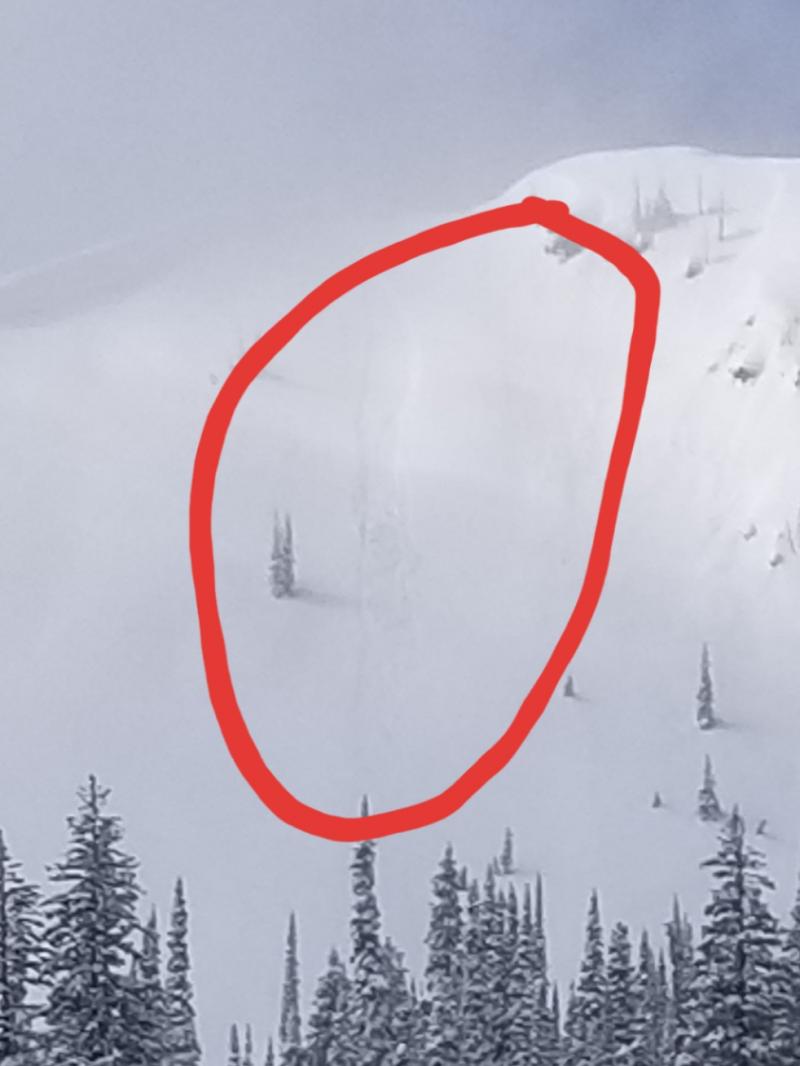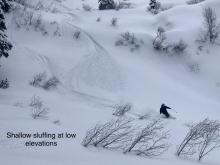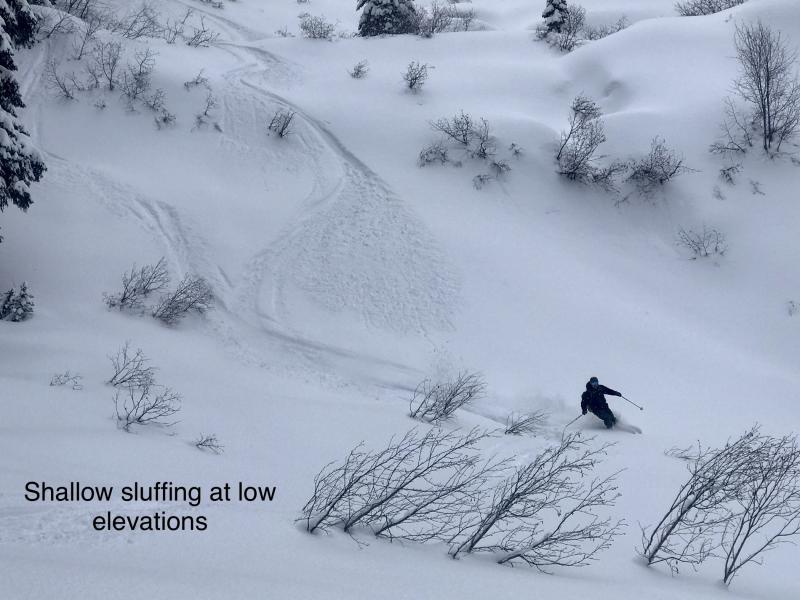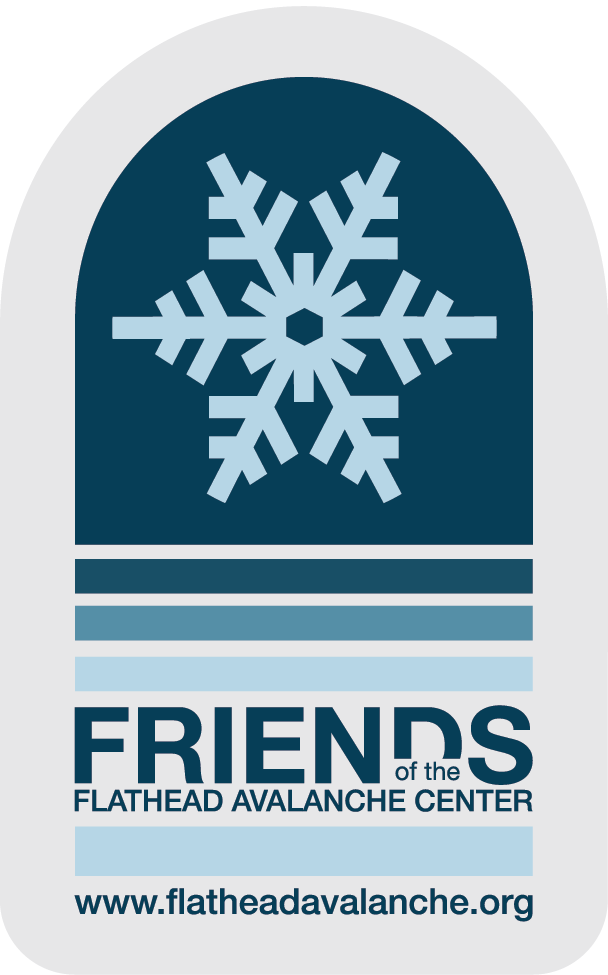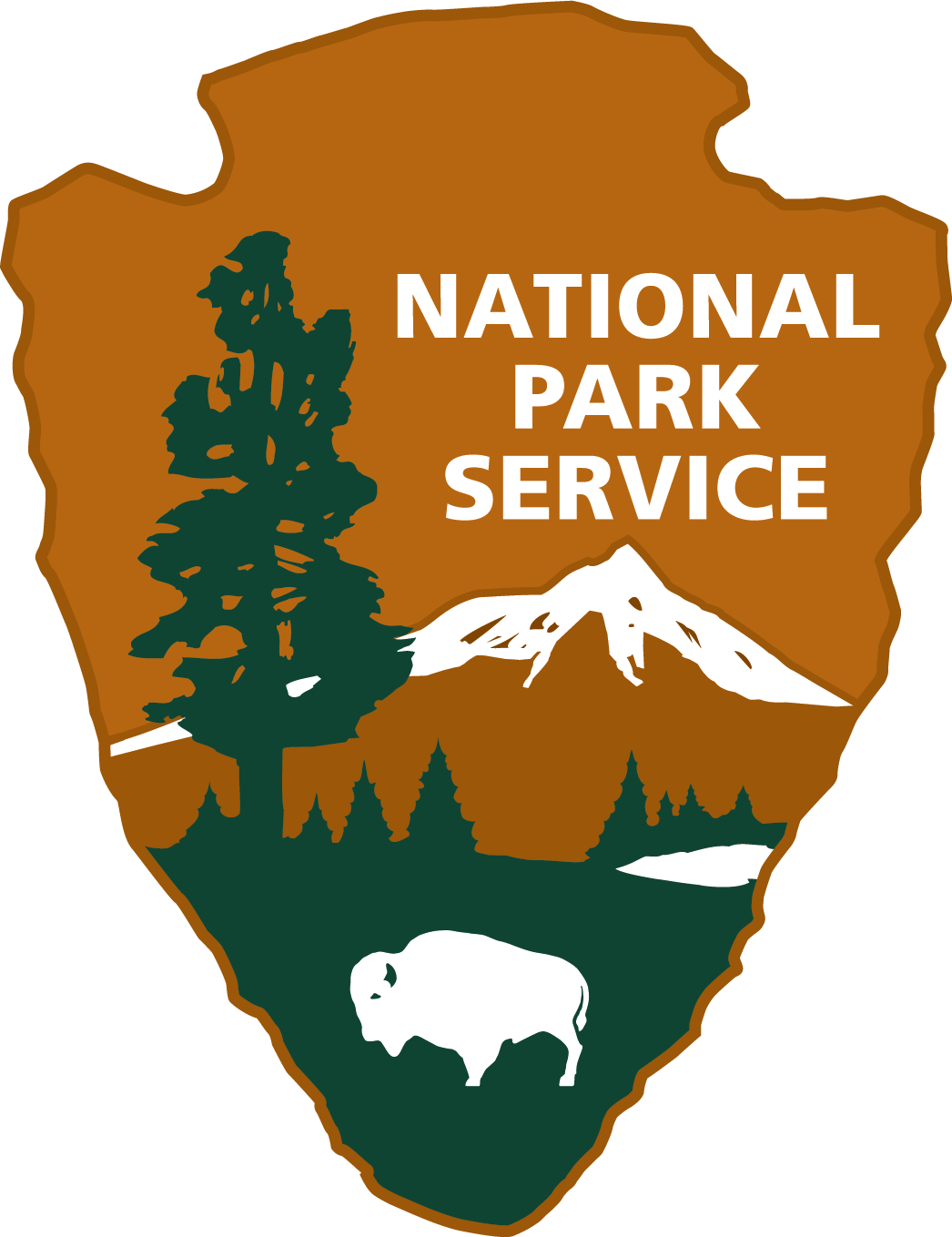| Tuesday | Tuesday Night | Wednesday | |
|---|---|---|---|
| Cloud Cover: | Scattered light snow showers. | Very light snow showers. | Snow showers ending. |
| Temperatures: | 18-27 deg. F. | 3-16 deg. F. | 18-27 deg. F. |
| Wind Direction: | SE | W | W |
| Wind Speed: | 3 mph | 3 mph | 5-7 mph |
| Snowfall: | 0-1 in. | 0-1 in. | 0 in. |
| Snow Line: |
Whitefish Range
Swan Range
Flathead Range and Glacier National Park
How to read the forecast
Today, the avalanche danger above 5000 feet is MODERATE where human triggered avalanches are possible. Pay attention to steep recently wind-loaded slopes where lingering wind slabs may exist. Below 5000 feet all slopes are rated at LOW danger. Treat recent wind loaded terrain as suspect and carefully evaluate the snow pack and terrain before committing to any slope.
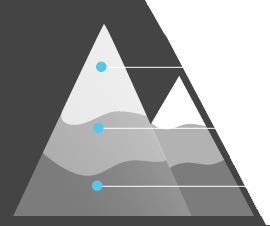
2. Moderate
?
Above 6500 ft.
2. Moderate
?
5000-6500 ft.
1. Low
?
3500-5000 ft.
- 1. Low
- 2. Moderate
- 3. Considerable
- 4. High
- 5. Extreme
-
Type ?
-
Aspect/Elevation ?
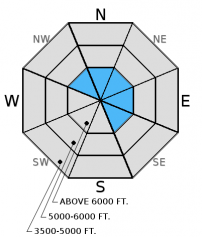
-
Likelihood ?CertainVery LikelyLikelyPossible
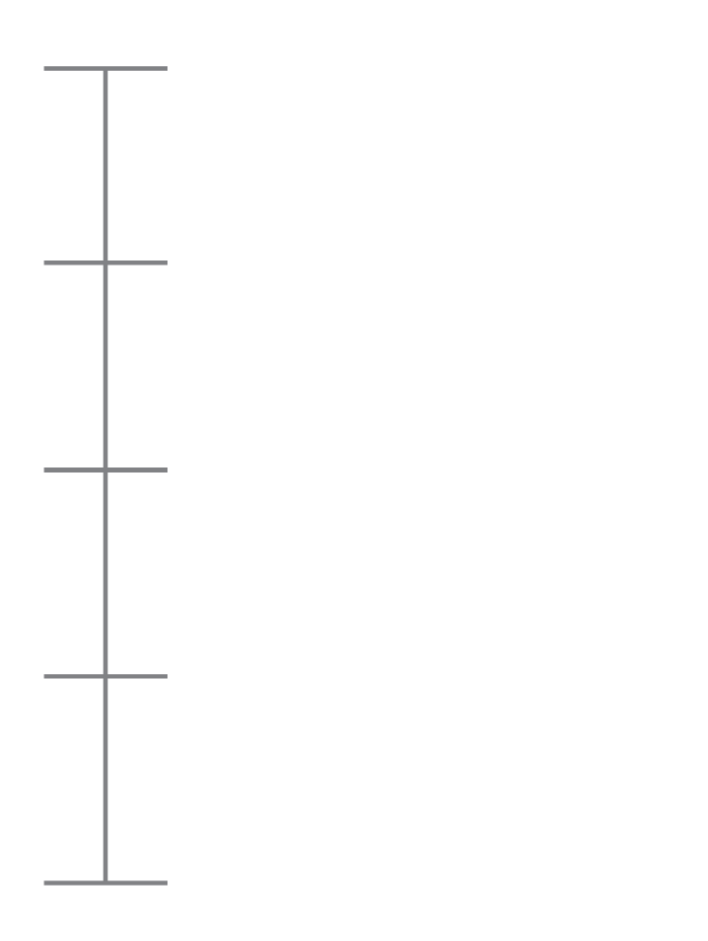 Unlikely
Unlikely -
Size ?HistoricVery LargeLargeSmall

Large portions of our advisory area have not been affected by wind both during and following the recent storm cycle. Therefore these areas do not have a wind slab avalanche problem. On Sunday morning moderate winds affected select locations of our advisory area and formed fresh wind slabs on leeward aspects and cross-loaded mid slope terrain features. These locations include southern Glacier Park, the Flathead Range and the northern Whitefish Range. Be aware of atypical loading that may occur today if easterly winds increase in speed beyond what is forecast. Recent wind slabs are identified by a smooth, rounded appearance and the snow will look thicker than other areas. Be sure to carefully assess wind-loaded slopes before skiing or riding in them.
-
Type ?
-
Aspect/Elevation ?
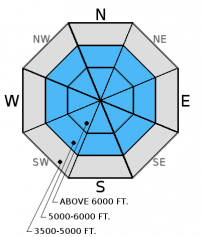
-
Likelihood ?CertainVery LikelyLikelyPossible
 Unlikely
Unlikely -
Size ?HistoricVery LargeLargeSmall

The abundant new snow over the past week came in light and cohesionless making for excellent skiing and riding conditions. This snow is settling out but there is still a lot of loose surface snow on most aspects at mid and upper elevations. In steep terrain the potential to trigger loose dry avalanches still exists. These sluffs occur underneath your skis, board or machine and therefore you have a chance to manage them. However, if they catch you off guard, they can have severe consequences like knocking you off your feet and into trees, rocks, and cliffs. If the runout is in a confined area like a narrow gully they could even bury a person.
Given the recent test in the form of a substantial load added to the weak snow above and below the the December 9 rain crust it is unlikely to trigger an avalanche on this layer, but not impossible. In many recent observations this layer is decomposing and not producing results in stabilty tests, however it is still worth taking the time to dig into the snow and see how it is reacting in the areas that you are skiing or riding. In some locations in the Flathead Range, Glacier Park, and parts of the Swan Range we noted and have received observations of weak, sugary snow near the ground. In some places it breaks and propagates across a column in stability tests, and sometimes it doesn't even break. Though it appears very isolated in distribution, it is worth mentioning that skiers in the southern Whitefish Range found buried surface hoar last Sunday which further illustrates the importance of digging in the snow to see what is going on below you.
Monday, skiers in the Middle Fork reported the recent storm snow as being right side up and the Dec 9th rain crust as decomposing. Stability was good except for minor sluffing on steeper slopes (observation).
On Sunday, we received a report from the ridgeline east of the WMR ski area. Skiers reported surface snow in this area as light, deep and cohesionless and were able to observe wind transporting snow on Great Northern Mountain in the Flathead Range.
Saturday, skiers in the Stryker Ridge area of the northern Whitefish Range reported deep cohesionless snow with no signs of wind affect. They skied northeast aspects above 6000' and reported lots of sluffing of the surface snow but no other obvious signs of instability.
Todd and I headed into Noisy Basin in the Swan Range on Saturday. The snow was deep and unconsolidated (photo). When there were breaks in the clouds, we observed several natural loose, dry avalanches that had recently occurred in steep terrain. Very minimal, recent wind drifted snow on the ridge that we traveled, but evidence of recent wind-loading at higher elevations on surrounding peaks.
Also on Saturday, skiers in Canyon Creek and Half Moon, both in the southern Whitefish Range found deep, unconsolidated snow with no obvious sign of instability. The party on Half Moon noted weak, faceted snow near the ground that did not react in stability testing.
Saturday, skiers on Elk Mountain in southern Glacier National Park noted wind transporting snow on surrounding peaks and ridge lines. The surface snow on sheltered aspects was unconsolidated. Snow depth at 6200 feet was 3.5 feet deep and they did not find the December 9 rain crust in this location. A seperate skier party on Elk Mountain also reported that there was no rain crust present. Stability tests produced failures but with out propagation within recent storm snow (observation).
Visit our Observations page and our You Tube channel for more information from the entire season.
Please let us know what you are seeing out there. Your observations are important and valued.
HOW TO SUBMIT OBSERVATIONS:
Email: [email protected]
Call and leave a message: 406.387.3821
You can also submit quick observations via text: 406.241.4571 (FAC mobile)
OR
Submit Snowpack Observations: http://www.flatheadavalanche.org/node/add/snowobs
Submit Avalanche Observations: http://www.flatheadavalanche.org/node/add/avyobs
Yesterday afternoon light winds shifted to an easterly direction and brought a cooler air mass to our area. Most locations and elevations saw light snow fall throughout the day with accumulations of up to 3 inches. Currently, temperatures above 6000 feet range from 6º-16º F and winds are out of the north through east at 1-11 mph with gusts up to 15 mph. Today, expect scattered light snow showers and temperatures rising to the mid teens to lower 20's. Winds will be light out of the southeast at 3 mph.
| 0600 temperature: | 6-16 deg. F. |
| Max. temperature in the last 24 hours: | 18-24 deg. F. |
| Average wind direction during the last 24 hours: | SW |
| Average wind speed during the last 24 hours: | 0-12 mph |
| Maximum wind gust in the last 24 hours: | 1-17 mph |
| New snowfall in the last 24 hours: | 1-3 inches |
| Total snow depth: | 53-68 inches |
This advisory applies only to backcountry areas outside established ski area boundaries. This advisory describes general avalanche conditions and local variations always occur. This advisory expires at midnight on the posted day unless otherwise noted. The information in this advisory is provided by the USDA Forest Service who is solely responsible for its content.

